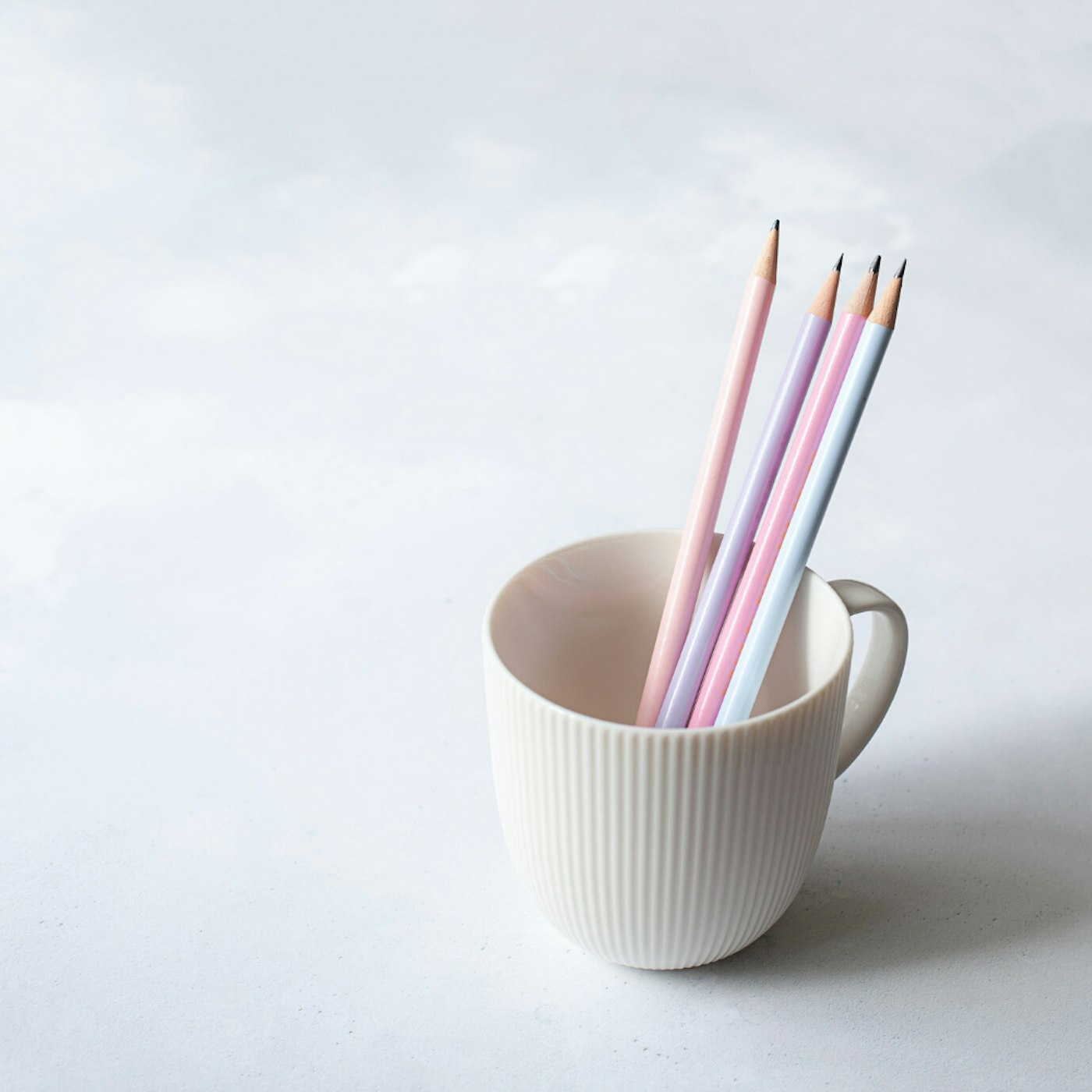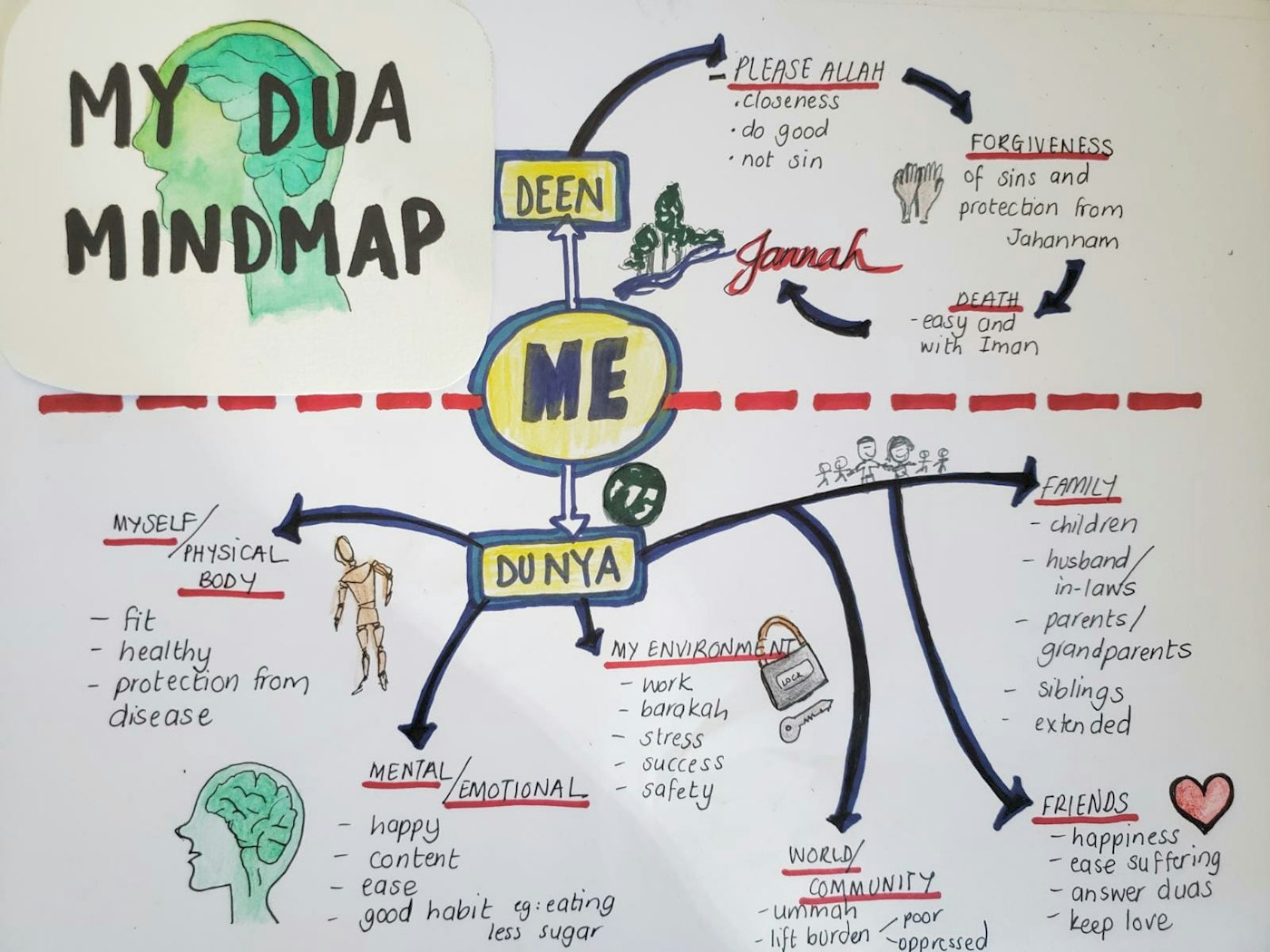Short Read: How I Use Mind Mapping to Plan My Duas for Ramadan
by Taskeen Jamal in Culture & Lifestyle on 22nd May, 2020

As part of my preparations for Ramadan this year, I decided to spend some time focusing on my dua, and defining what it is I would be asking of Allah during this special month. I realized that whilst dua is a daily practice, preceded by my every salaah, I have not given it enough meaningful attention to benefit from the value I could otherwise gain from it.
Allah says in the Quran (Chapter 40, Verse 60): “Call upon me; I will respond to you.”
I became aware that I have not been clear and specific in my appeal to Allah, often just quickly rattling off some previously thought of requests without giving it conscious thought. To expect results, I need to define exactly what I wanted from Allah, in all aspects of my life. This way I can feel sincerer and connected to Allah with my requests. So I sat down and brainstormed all the many things I wanted for myself- and my family by using an awesome tool called “Mind Maps.”
This takes me back to my school and university days where I would use this technique for studying, to categorise information when there is a lot to work with. Mind Maps are a creative way to visually represent ideas or lists that we have in our minds. It can help us to structure our thinking to give it purpose and meaning. We start with one idea and branch off to many others, thereby capturing all the things we want under each topic.

Start with yourself
So for example, when structuring my dua request, I started with myself: “Me” in the image above, and then separated into two main areas: Deen and Dunya. Under “deen” I listed a few headings such as pleasing Allah, forgiveness, and our ultimate goal – attaining Jannah. Under “Dunya”, I expanded to all the aspects in my life that I could think of – such as for personal I included health, mental and emotional. I then moved on to people in my life such as my family, friends, and the ummah, followed by my environment such as work and so forth. All the time, listing in each category everything I desired, for example under health asking for a stronger body or to meet my fitness goals. Under family, I listed protection, their success, and happiness. The beauty is that nothing is out of scope as I continued to list everything I wanted under each subheading, remembering that Allah is Most Powerful and Most Merciful and can grant as He wishes.
Logic
The purpose of using this tool, over simply listing is that the subheadings or branches, just provide a logical structure to ensure everything is covered. The creative process provides a lovely flow as thoughts keep popping up, and I could easily capture it under each branch. It also brought to my consciousness some things in my life that I wanted changed, yet I was not explicitly making dua for it! So I could now add it to my comprehensive dua list.
Use
So once complete, how do I use this dua mind map in practice? I could now either use it as a reference point to look at when making dua, or I noticed that many things I uncovered during the creative process itself, now automatically came to mind each time I make dua which is a great outcome too. This map can also be used to prompt when making shukr (thanks to Allah) as part of dua and daily practice.
Thank & Praise first
Finally, for the best results, I will consider the most effective times for supplication, and structure the dua according to the way we were taught by the Messenger of Allah (May peace be upon on him) by first thanking and praising Allah, and then emptying my heart to connect to Allah more deeply, using my new and improved comprehensive dua “list”.
In this way, I feel more present when I appeal to Allah through dua. I come from a place of being heartfelt, no longer absent-mindedly making dua on autopilot. Rather I am fully conscious when I am asking for what I want from Almighty Allah- detailing to my hearts desire all the requests I can think of, for myself and my family, friends, and indeed the world, Insha Allah.
Taskeen Jamal
Taskeen is a Business Professional with 10 years of international experience in corporate marketing for leading local and global brands. She is also a Certified BodyTalk Practitioner based in Istanbul currently, and offers remote balancing sessions for clients all over the world. She writes articles, runs a blog and shares her creative content and videos online,to inspire positive living, healthy body and mind and closeness to Allah. She shares her passion for planning and productivity on Instagram to help busy moms with simple ideas for managing their time and their tots. She has appeared on British Muslim TV and Radio Al Ansaar in South Africa. IG: @productive_muslim_mom